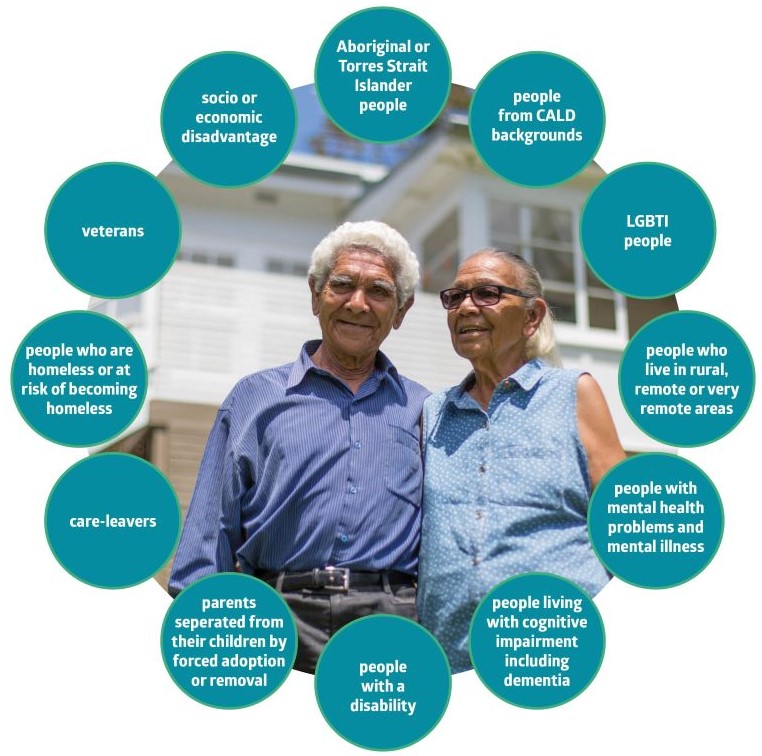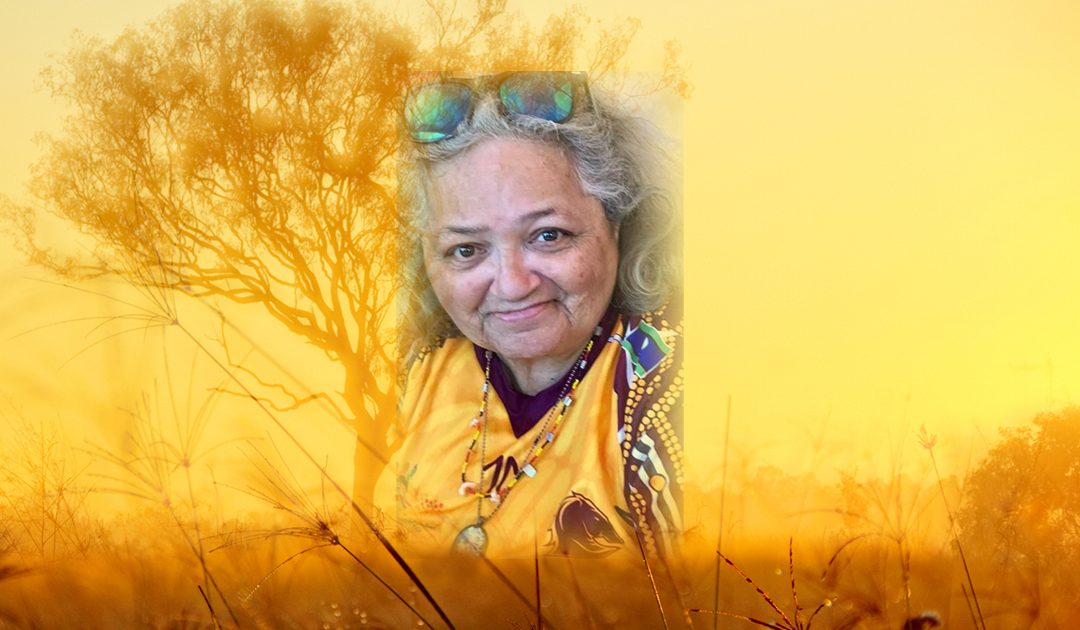Healthy@home clients share their diverse life stories
WHEN you have spent your childhood in an institution, fear of authority becomes ingrained. It took the best part of a lifetime for 67-year-old Vicki Dale to overcome her trepidation and take control of her own health. These days, with the support and understanding of the team at the Institute for Urban Indigenous Health (IUIH), Vicki is back on track.
Vicki says the team at IUIH has helped her develop the confidence to deal with her health issues – and she’s committed to helping others from her mob do the same.
“A lot of people are scared and hesitate to do something about their health. Some don’t know how to read or have been too afraid to talk,” she says.
“When you grow up in a home or a mission, you have this fear that they are going to take you away again because you are unhealthy. Even if it isn’t true, it’s still in the back of your mind that that is going to happen.”
Vicki was 11 and a half when she left what she calls “the concentration camp” and discovered the love of a foster family. That’s when her life turned around.
“In the home we had to knuckle down and do everything they said. There was no choice. I was left-handed and that had to be belted out of me. I never knew who to trust,” she says.
“At first I didn’t even trust the people who had fostered me, but they taught me how to love and respect people.”
A spirited child whose initiative and determination was interpreted as wilfulness, all she needed was the understanding and guidance she received from her foster family who encouraged her to read – and let her write with her left hand. She went on to do TAFE courses so she could learn more.
“I needed to know I wasn’t a dummy like they had always called me,” she says. “I had that fear when I was young. They told me I would never come to anything, and I decided ‘well you just watch me’.”
Vicki takes control of her health with IUIH
Vicki admits that stubbornness was often her downfall, but she learnt to listen. These days she is comfortable talking – and listening – about her health with IUIH. She benefits from their experience and wants others to do the same.
“They have made my life a hell of a lot better than I expected,” she says. “I was going downhill before they started. I was listening to other people who weren’t giving me the advice I needed. I went in there when it first started about 12 years ago, and I really think that a lot more people would benefit if they went there too.”
Vicki suffered diabetes, had the usual “women’s problems” that come from childbearing, and was sceptical about going to the dentist. She now sees a physio at least once a month and feels her health is on track.
As a healthy@home aged care consortium member, IUIH has also enabled Vicki to enjoy more time yarning with her mob by connecting her to a social support group.
On top of this Vicki and her husband receive healthy@home domestic assistance services and her husband receives personal care, funded through the Commonwealth Home Support Program.
“The fear is gone, and I want to pass it on to the rest of the mob, help them overcome their fears and tell them they should keep their mouth shut and listen while we are trying to get better,” she says.
It’s a two-way street. Vicki says that while her mob are afraid and have the stubbornness that arises from lack of knowledge, health professionals need to understand the importance of taking the time to know the person and to explain their situation to them carefully.
“When a doctor says you have to have something done but doesn’t stop to fully explain what it is, it can be terrifying for someone who can’t read. They can’t just go home and find out for themselves,” she says. “They need reassurance and someone there to help them understand.”
And it’s all about trust, she says: “Doctors need to understand that and take the time to explain what’s going on. We don’t need judgement.”
Now that she is older, Vicki says she has had a good life, although it would have been even better if a service like IUIH had come along when she was younger.
“I could only go to a hospital then and they never really understood my needs or treated me like a human. They treated me like an idiot, an uneducated idiot.”
Thankfully that has changed.
“I have a better life now than in my younger years and I want to help others in the mob overcome those same fears that I have had – you have to, because they need help.”

The Aged Care Diversity Framework
The Aged Care Diversity Framework aims to ensure a high quality aged care system that embraces the diverse characteristics and life experiences of consumers. Older people with diverse needs. characteristics and life experiences may be part of a group or multiple groups that may have encountered exclusion, discrimination and stigma during their lives.
The above article is part of a series that tells the real life stories of healthy@home clients. It has has been approved for publishing by the service provider and client.

